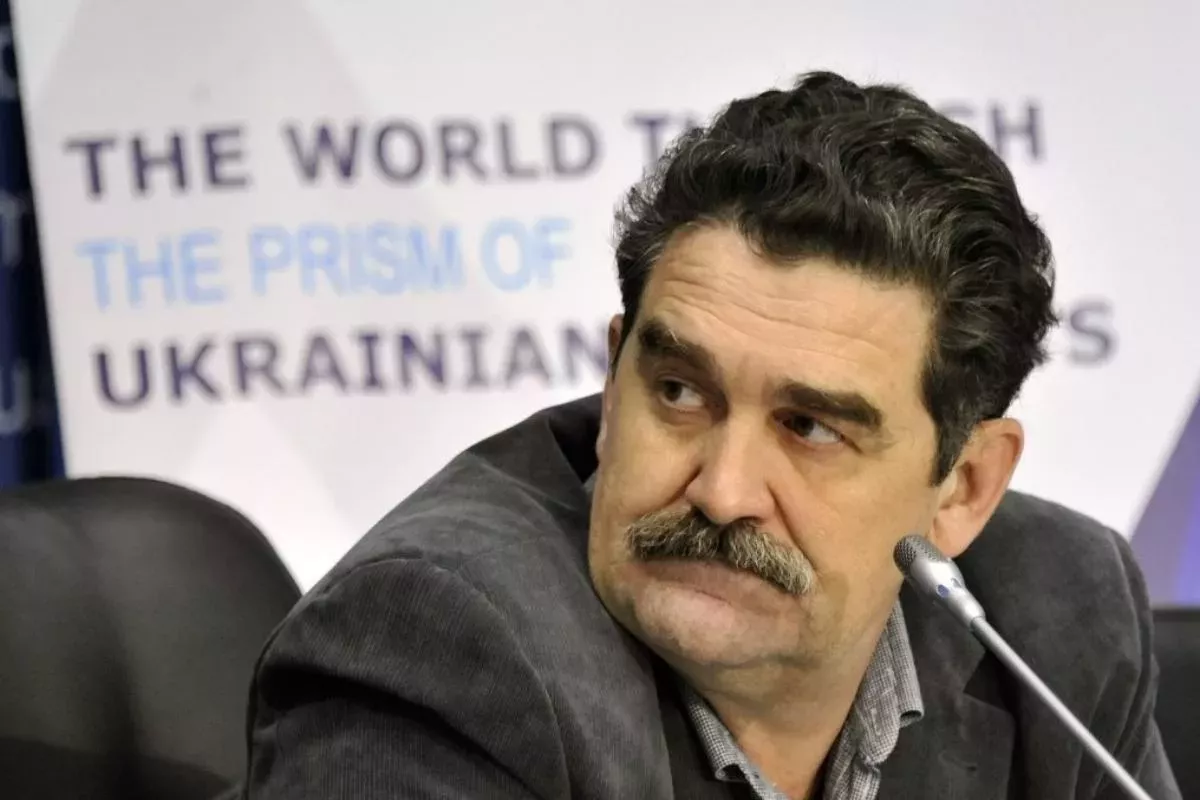Assad's fall: What comes next for Syria? Experts weigh in
The evolving situation in Syria raises many questions. First, how did Assad's regime collapse so quickly? What lies ahead for Syria? Meanwhile, U.S. President-elect Donald Trump stated on his Truth Social page that the United States should not interfere in Syria. "In any event, Syria is a mess, but is not our friend, & THE UNITED STATES SHOULD HAVE NOTHING TO DO WITH IT. THIS IS NOT OUR FIGHT," he declared.
But what could happen in reality if there’s no intervention? The core of the rebels is made up of several Wahhabi groups, and they are armed. This means there’s a high likelihood that they will soon control much of Syrian territory. What will they do next? Will they focus on addressing Syria’s numerous internal problems, or will they begin threatening neighboring countries?
Renowned regional experts shared their insights on these questions with Caliber.Az.
According to Israeli political scientist Professor Zeev Hanin of Bar-Ilan University, it does not currently appear that the United States or other major powers are ready to intervene in Syrian affairs.

"To begin with, Russia and Iran, the two main allies of the Assad regime, decided not to support their satellite. Essentially, aside from some sympathy in Tehran, Assad received nothing. As a result, the frontlines collapsed very quickly, the army fled, and no one was willing to defend the regime.
In essence, the rebels now control most of Syria, including the capital. The composition of these rebels is a rather mixed conglomerate, whose only common interest is the overthrow of the Assad regime—an Alawite, quasi-Shiite ally of Iran. But what happens next, given that the core of these groups consists of Salafi factions, previously affiliated with Al-Qaeda and ISIS, which, even after breaking away, have not abandoned their radical Islamist-Salafi ideology?
The alternative to Assad's authoritarian regime will not be democracy but another authoritarian regime—only this time Sunni, rather than Shiite.
And therefore, there is every reason to believe that this entire conglomerate—Salafi movements, pro-Turkish militias, pro-American militias, and others—will eventually find themselves in conflict with one another. At the moment, it seems that the declarations we are hearing might hold true for now. For instance, unlike the global jihadist slogans of Al-Qaeda or ISIS, the leaders of this Salafi core within the rebel movement are currently focused on creating an Islamist state within Syria's borders. They are making every effort to demonstrate, even to Israel, that they have no intentions of claiming foreign territories, that the Palestinian issue is irrelevant to them, and that they are not raising questions about the fate of Jerusalem, the Temple Mount, and so on," the professor explains.
At this stage, he notes, Donald Trump is returning to power for a second term, under the banner of ending wars rather than starting them.
"Thus, officially, it seems the Americans are not planning to intervene. But the question arises: how will they act if the new rulers, for example, start putting pressure on the Kurds? The territory controlled by pro-American and Kurdish militias is viewed by these groups as a terrorist zone. If military pressure on the Kurds begins, the U.S. will inevitably have to intervene to some extent.
In western Syria, there is an Alawite region. It’s clear that at some point, with changes in the power structure and the radicalization of governance, there will also be conflicts with the Alawites and other ethnic and religious minorities, such as the Druze in southwestern Syria. In this sense, we might witness yet another round of civil war, but this time with different players," the political scientist predicts.
In this scenario, Israel will need to consider how to secure its northeastern borders, he concludes.
"It is absolutely clear in this situation that replacing one evil with another—radical Shiite Islamists with radical Sunni Islamists—will bring no real benefit. Although, at some stage, as some Israeli experts believe, the situation might stabilize, and there could be a few years of relative calm, giving Israel the opportunity to focus on other issues.
The disruption of Iranian arms shipments through Syria to Hezbollah is a certain advantage, but it’s evident that this won’t last indefinitely. Moreover, considering that the security zone is now empty, international peacekeepers, so to speak, have left, and all the agreements and understandings previously in place between Israel, Russia, and Damascus are essentially nullified and irrelevant, the emergence of radical Islamist militant groups along Israel’s border in this security zone is far from an ideal scenario for the country.
This explains why, as we’ve heard, Israeli forces are now entering the area and taking responsibility for securing this very security zone," Hanin said.

The Executive Director of the Middle East Studies Center (Kyiv), Ihor Semyvolos, believes that it can now be stated that the decades-long Assad family regime in Syria has fallen.
"This is a remarkable event that will undoubtedly have profound geopolitical consequences for the entire region and could trigger the so-called 'domino effect.' However, it is important to note that the scenario of external expansion, which pro-Russian experts warn about, is unlikely. Several factors work against such a scenario.
Firstly, and most importantly, the Syrian people are exhausted from years of war and are eager to end it as soon as possible. The devastated economy and infrastructure require significant efforts for reconstruction, which is impossible amid ongoing conflict. Rebel political leaders understand that the period of euphoria will pass quickly. Without an effective transitional government recognized by the international community, it will be impossible to hold new elections that establish legitimate authority and, consequently, secure the resources necessary for rebuilding.
At the same time, it is necessary to initiate a large-scale domestic political negotiation process to determine the future territorial structure of Syria and seek compromises among various factions. It is no secret that representatives of different groups have divergent views on the future political system, the role of religion, and minority rights—all of which require swift negotiations and agreements.
Certain foundations for this have already been laid. One factor behind the success of Hayat Tahrir al-Sham has been the effective agreements reached by its leader, Abu Mohammad al-Julani, with representatives of other ethno-religious groups and tribal sheikhs. I believe this trend will continue moving forward," the researcher notes.

The scenario of Syria's disintegration—such as the separation of Latakia or the Kurdish-controlled areas in northeastern Syria—is considered unlikely by the researcher.
"In his CNN interview, Jolani identified one of his primary goals as liberating Syria from foreign presence. Let me remind you that, in addition to the Russians and Iranians, parts of Syrian territory are controlled by Turkey and Israel. Notably, the latter entered Syria literally on the day of Bashar al-Assad's regime's collapse, establishing the so-called 'security zone.' It is clear that the issue of foreign presence in Syria can only be fully resolved after elections bring a new government to power.
It is equally clear that no Syrian government will ever recognize the Golan Heights—a Syrian territory occupied and annexed by Israel—as part of the Jewish state. What form this process will take remains uncertain, but at the initial stage, the rebels are likely to refrain from direct confrontation with Israel.
The question of Hezbollah remains unresolved. I anticipate that Syrians will aim to further weaken Shiite influence in Lebanon and reformat Lebanese politics in the spirit of the 2005 Cedar Revolution," stated the center's director.
In his view, Iran, like Russia, is among the biggest losers in this situation.
"The efforts Moscow invested in strengthening its geopolitical position in the Middle East have gone down the drain. This is a crushing geopolitical blow that will likely undermine the Kremlin's influence in the region and serves as a clear demonstration of Russia's inability to protect its satellites, especially against the backdrop of massive losses in Ukraine.
Tehran, for its part, has lost the so-called Shiite corridor that it had been carefully building since 2015. The defeat of the IRGC Quds Force expeditionary corps will have a significant negative impact on the IRGC's position within Iran. This could encourage moderate forces to reconsider the IRGC’s role in the country, potentially leading to a split within the Iranian elite and signaling the beginning of the end for Islamist rule," Semyvolos concluded.








